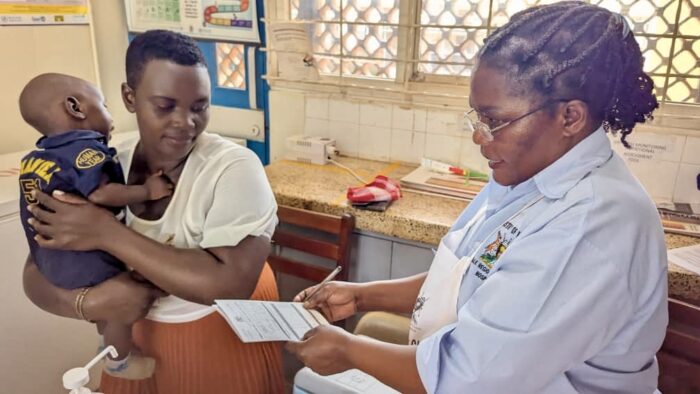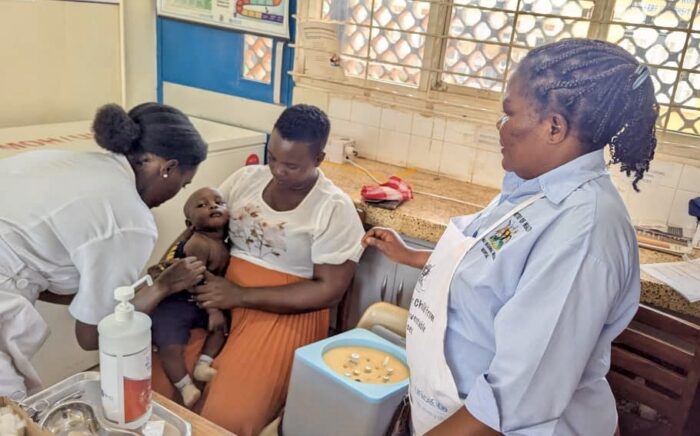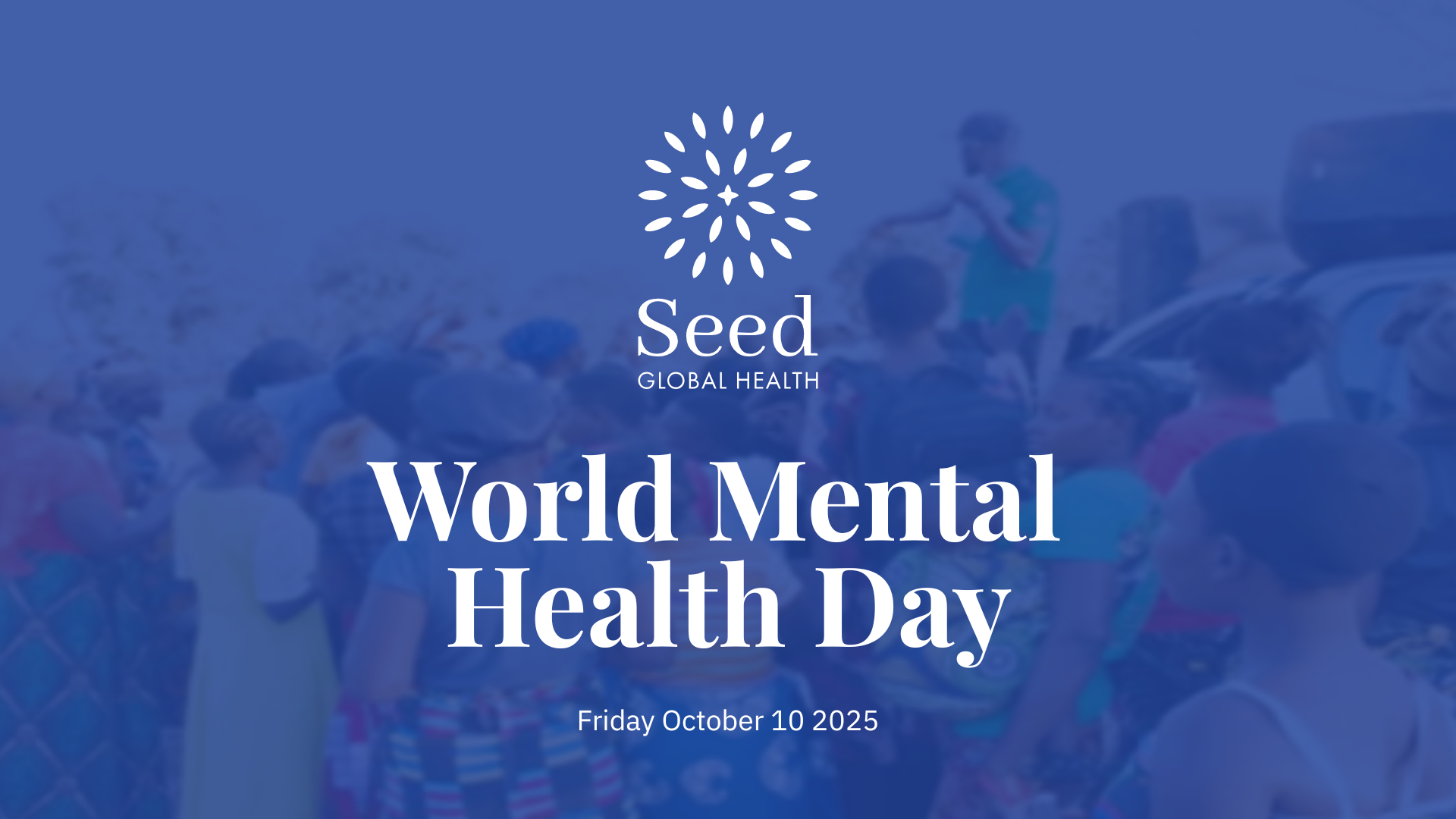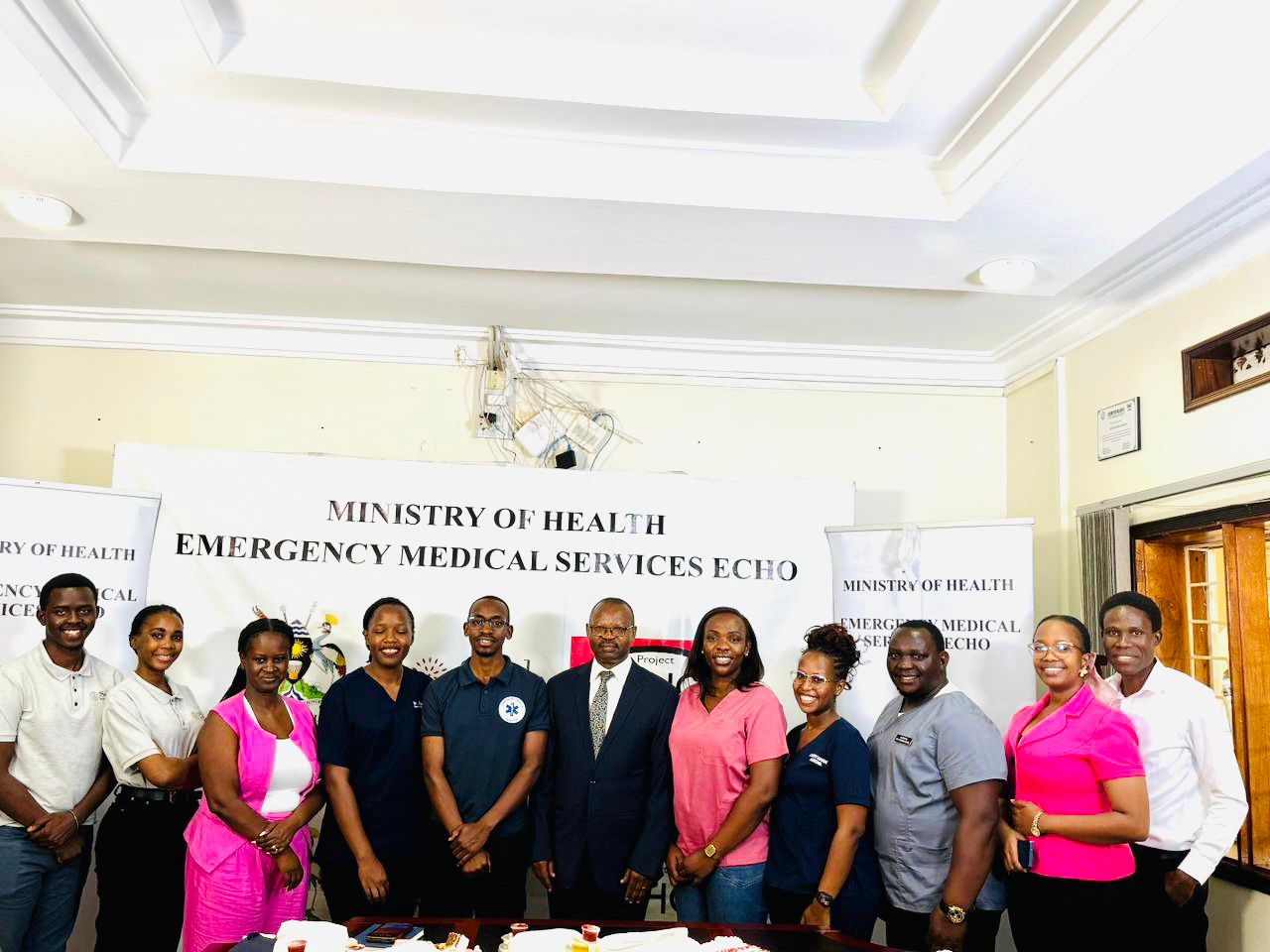
How Health Workers Are Building Trust in Uganda’s Malaria Vaccine
In April 2025, Uganda launched a major malaria vaccination campaign for children, starting in Apac district, where malaria prevalence reaches 66%. The effort spans 105 districts with high or moderate transmission to reduce child deaths and improve public health.
Uganda now ranks third in malaria burden among African countries, according to the 2024 WHO World Malaria Report. The vaccine’s introduction into Uganda’s routine immunization program is both timely and lifesaving.
But effective vaccine delivery takes more than supply, it depends on skilled health workers, informed caregivers, and strong systems. At Seed Global Health, we focus on maternal, newborn, and child health in Uganda, including training midwives to support healthy pregnancies and ensure newborns receive essential care, including vaccines.
We spoke with Sister Mukyala Dorothy, a midwife at Mbale Regional Referral Hospital, about her role in supporting the malaria vaccine rollout, and how she’s helping counter mistrust and save lives.

1. How has the introduction of the malaria vaccine affected your maternal and child health work here at the young child clinic?
Sr. Dorothy: The malaria vaccine has come as a blessing. It’s well integrated into our child immunization schedule. When mothers come for the usual immunization visits, we use that opportunity to educate them about the malaria vaccine and administer the first dose if the child meets the criteria.
2. Do you feel it has changed how mothers engage with the clinic?
Sr. Dorothy: Yes. We’ve noticed that the vaccine brings more mothers back for scheduled visits. Before, some would skip follow-up appointments, but when they learn their baby can be protected from malaria, which they know is deadly, they are more likely to return. This consistency helps us monitor growth, nutrition, and other maternal and child health indicators more closely.
3. How does protecting children from malaria contribute to broader maternal and child health goals?
Sr. Dorothy: It’s foundational. Malaria is one of the leading causes of anemia and death in children under five. When a child is frequently sick, it affects nutrition, growth, and cognitive development. And for mothers, it creates economic strain because they miss work, worry constantly, and spend money on transport and drugs. If we reduce malaria cases, we reduce clinic congestion and can focus more on counselling, nutrition, breastfeeding support, and even early childhood stimulation.
4. So, it’s more than just prevention?
Sr. Dorothy: Yes. It improves the whole ecosystem of child health. A healthy baby means a less stressed mother. And that’s exactly what maternal and child health is about: caring for the duo, not just the disease.
5. What are mothers and community members saying about the malaria vaccine?
Sr. Dorothy: At first, there was a mix of excitement and confusion. In some villages and communities some mothers told us, “We’ve heard this vaccine is for rich people, is it really for us?” Others feared side effects because malaria isn’t a new disease, and they wondered why the vaccine has been introduced now.
6. Would you say the community has embraced the vaccine? Or is there still some hesitancy?
Sr. Dorothy: Both. Among urban mothers, like those from Mbale city, the uptake is high. But in some rural areas, we still face hesitancy. Some mothers say, “Our ancestors survived without this.” But with the right approach and conversations, we’re seeing acceptance of the vaccine.

7. Could you share a specific encounter where you had to teach or convince a mother?
Sr. Dorothy: I remember a young mother who came for a growth monitoring visit. When I brought up the vaccine, she looked worried and asked, “Will this make my baby infertile when she grows up?” I took time to explain how the vaccine was tested, how it reduces severe malaria, and how her baby could still use a bed net alongside the vaccine. She later told me, “I didn’t know nurses could explain so kindly.” She then agreed to have her child get all four vaccination doses.
8. Any interesting or unexpected stories you’ve heard?
Sr. Dorothy: Yes, one mother came back after the first dose and told us she felt “blessed” because her child hadn’t suffered from any fever or malaria episode since the first dose. She then mobilized two of her co-wives and they all brought their children for vaccinations. That kind of community-based influence is powerful.
9. Are there any health workers or midwives mentored by Seed Global Health who have acted as champions for vaccine uptake?
Sr. Dorothy: Absolutely. I can mention midwife Annet from Busiu Health Centre IV and myself. I have been part of a Seed-supported mentorship on person-centered care. I have been instrumental in community outreaches, especially in rural areas. The midwife Annet uses every antenatal and postnatal education session to emphasize malaria prevention and vaccine benefits at Busiu Health Centre IV, where she works.

10. What kind of experiences has Annet shared?
Sr. Dorothy: She told us that during one outreach, a community leader (the local council chairperson) had refused to mobilize people saying, “Vaccines are not our priority.” But Annet explained the burden of malaria in children under-five and tied it to maternal outcomes like anemia during pregnancy. By the end of the day, the same leader was asking for more educational posters and invited Annet back to talk to men in the village.
Health workers like Sr. Dorothy and Annet are at the heart of maternal and child health, guiding mothers and protecting newborns. They are educating communities about the value of vaccines and addressing myths and fears that often hinder uptake. They are building trust in life-saving medicines like the malaria vaccine and their work is vital in ensuring that no child is left behind.
Support from partners like Serum Institute of India has helped make this possible. In 2023, Serum Institute of India Pvt. Ltd., backed a bold investment in health workforce training, recognising that a strong, well-trained health workforce is essential for the successful delivery of vaccines, particularly in low-resource settings.
Like Seed, Serum Institute of India believes in strengthening entire health systems, because without a comprehensive approach, we risk losing ground: more preventable deaths, widening inequalities, and setbacks in maternal and child health.
At Seed, we believe that investing in health workers achieves sustainable and lasting change for communities everywhere. Through our partnership with Mbale Regional Referral Hospital and Busitema University, we train midwives through hands-on clinical mentorship and simulation-based education. As part of this collaboration, Seed has also funded the construction of a second obstetric theatre at Mbale Regional Referral Hospital, which began in April, 2025.

